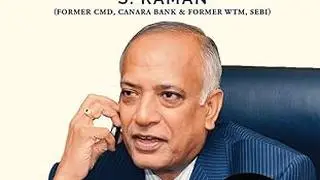The title was intriguing. ‘Philosophy of Modern Song’? Must be yet another Dylanesque pirouette, I thought, a play of shadows by the master in his twilight years.
Confused, I actually looked up the dictionary to understand what Bob Dylan meant. And then it struck me, the title was perfect. Couldn’t have been anything else.
“Philosophy is an activity people undertake when they seek to understand fundamental truths about themselves, the world in which they live, their relationships to the world and to each other.” (Roget’s Thesaurus)
Bob Dylan’s masterpiece—there can be no other word—is a deep, spiralling descent into how ‘music connects us with the world and each other’.
The heavy book, more like a medical tome from the early 20th century, is a collection of 66 essays.
Each essay is divided into two parts—the first is a fairly literal take on the song, replete with rich anecdotes, a bit like a DJs fast rant (imagine a Nobel winner as a DJ if you can); and the second is pure stream-of-consciousness journey that leads us through the labyrinths of Dylan’s mind.
The two-part approach is not a rule, because he sometimes just includes one of those two parts or the other.
You should pick up the book for the latter alone—I was gasping at the molten magma of Dylan’s livewire prose.
Most of these songs are from Dylan’s teens by the way, before he turned to Arlo Guthrie-style folk and hopped across to New York and made history.
Profusely peppered with stunning photos directly or tangentially related to the songs, the best way to start the book is to start anywhere.
And it will come tumbling out, the deep dives, the wisecracks, the wit. Here’s a sample:
“The Grateful Dead was essentially a dance band… they have more in common with Artie Shaw and bebop than they do with the Byrds or the Stones.”
Wow. Wow. Wow. Only Bob Dylan can call the Grateful Dead a dance band. And he makes absolute sense.
“Art is a disagreement. Money is an agreement. The only reason money is worth anything is because we agree it is.”
Oh man. Bob Dylan just explained the basis of cryptocurrency.
“One mark of civilisation is the ability to increase the distance between yourself and the person you kill.”
This sounds like a cousin line from Dark Eyes (album: Empire Burlesque) …”Hunger pays a heavy price, to the falling gods of speed and steel”.
Sometimes, Dylan does a masterclass on what makes a song magical. Writing about Marty Robbins’ “El Paso,” he speaks of the quirkiness of “the pickup phrases between the end of the bridge and the next verse, short preludes that propel you into the ongoing story. These phrases are as important as any other words in the song.”
The other interesting thing is Dylan, in this book, forces you to take another look at people you walked past without acknowledgement decades back. Remember Perry Como the crooner? The flat-out boring Como (or so we thought), according to Dylan “is the anti-flavour of the week, anti-hot list and anti-bling. He was a Cadillac before the tail fins; a Colt .45, not a Glock; steak and potatoes, not California cuisine.” Wow. Must hear Perry Como again.
I’ll end with an aside on Hank Williams—and contemporary music perhaps: “Everything is too full now; we are spoon-fed everything. All songs are about one thing and one thing specifically, there is no shading, no nuance, no mystery. Perhaps this is why music is not a place where people put their dreams at the moment; dreams suffocate in these airline environs.”
Get the book. It’s by a genius of song writing, perhaps the only one we have left.
Shubho Sengupta is a digital marketer with an analogue ad agency past. A music buff, he can be found @shubhos , pontificating on food, fetishes and football
Check out the book on Amazon
About the Book
Title: The Philosophy of Modern Song
Author: Bob Dylan
Publisher: Simon & Schuster
Pages: 352 pages
Price: ₹1,790 (Hardcover)









Comments
Comments have to be in English, and in full sentences. They cannot be abusive or personal. Please abide by our community guidelines for posting your comments.
We have migrated to a new commenting platform. If you are already a registered user of TheHindu Businessline and logged in, you may continue to engage with our articles. If you do not have an account please register and login to post comments. Users can access their older comments by logging into their accounts on Vuukle.